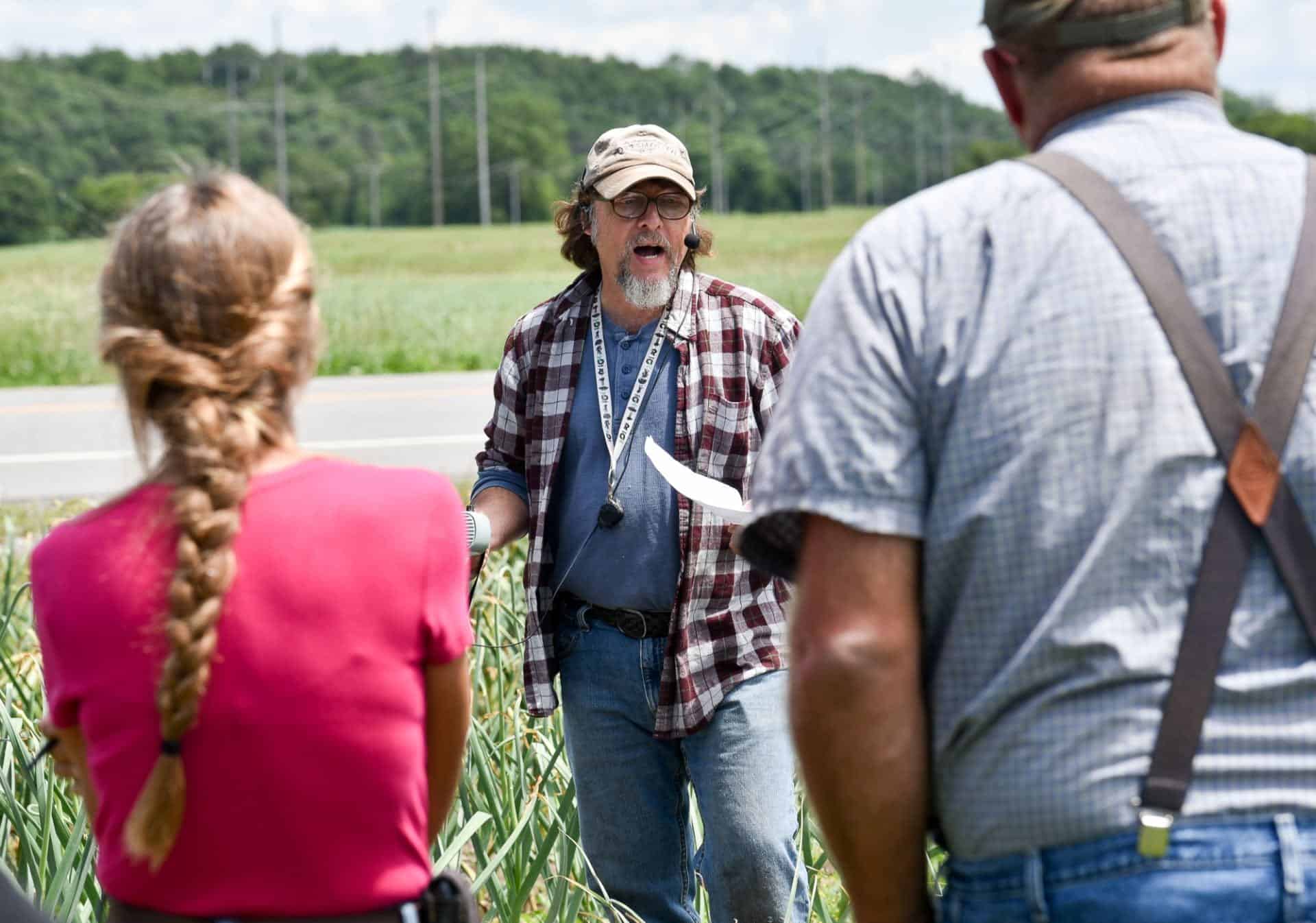“Sweet Potato Whisperer” Explores Transplant Production
The demand for reasonably sized sweet potatoes has grown well beyond supply.

Cornell Cooperative Extension (CCE) Cornell Vegetable Program Specialist Robert Hadad is assisting a local farmer with a project to create a sweet potato slip production operation to provide locally grown transplants. Courtesy of R.J. Anderson / Cornell Cooperative Extension.
In September, Cornell Cooperative Extension (CCE) Cornell Vegetable Program Specialist Robert Hadad, together with CCE Wayne County Executive Director Beth Claypoole, visited a small, mixed vegetable farmer in Wayne County that grows sweet potatoes. He has focused production on four varieties that do very well for him. Many sweet potatoes grown in western New York are of one variety: Beauregard, out of North Carolina. Beauregard generally produces one very large tuber and a number of small ones. The big tuber is usually too big for many consumers (as well as chefs) and the small tubers are not that impressive. The farmer that we visited has plants that grow consistently intermediate sized tubers that are ideal for chefs and his roadside stand customers love them!
What’s so exciting about this? The demand for reasonably sized sweet potatoes has grown well beyond supply. The sources for sweet potato transplants (also called “slips”) are from the south mostly North Carolina, Georgia, and Louisiana. Many times, the transplants are sent up to northern growers in April or early May. When we have an early spring that is fine. When we have a cold wet spring, the transplants can’t be planted and farmers lose many of the slips before they ever hit the field. The farmer in Wayne County has developed a successful operation to produce his own transplants.
After meeting with the farmer, it was clear he enjoyed challenges. The question was poised to him about expanding transplant production in order to help supply western New York growers with sweet potato variety slips that have become acclimated to our shorter-than-the-south season and have them ready when our growers need them, mid to late May. He has agreed to work on a project to create a sweet potato slip production operation to provide locally grown transplants.
Together, with the CVP being an advisor, a NESARE farmer grant will be applied for this fall. The goals are to compare two transplant production practices to determine the best to use to ramp up the number of slips that can be grown in his greenhouse. The resulting transplants then would be made available to other growers to expand the amount of sweet potatoes grown in the region. Besides fresh market sales, there is a great interest from farm-to-school programs in having fresh sweet potatoes on the cafeterias’ menus.
Robert Hadad is a vegetable specialist with CCE’s Cornell Vegetable Program. He can be contacted at rgh26@cornell.edu.

